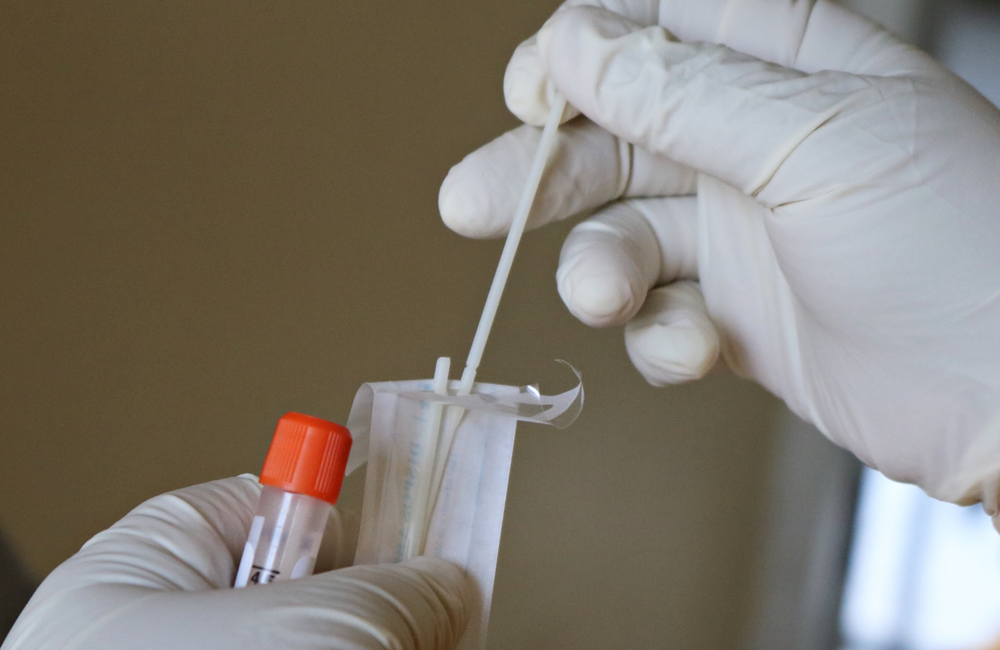
Despite improvements in the quality of sexual health screening over the past decade, men who have sex with men living in many European cities report not having tests that would detect rectal gonorrhoea or chlamydia, data from the European MSM Internet Survey (EMIS) show. Improvements have mostly been seen in western Europe, with gaps most commonly observed in eastern and south-eastern Europe.
“To ensure early diagnosis and treatment in men who have sex with men, screening of STIs must include a combination of blood tests, genital tests and anal swabbing,” note Jason Doran and colleagues in Sexually Transmitted Infections.
EMIS was an internet-based survey that was made available in multiple languages across Europe in 2010 and once again in 2017. Eligible participants were men who have sex with men, mostly recruited from dating apps and websites including Planet Romeo, Grindr and Hornet. Additional recruitment was through Facebook, Twitter, community organisation websites and email lists.
Participants were asked if they had been screened for sexually transmitted infections (in the absence of symptoms) in the previous year. Those who had were asked for more detail about what happened, specifically the kind of diagnostic procedures that were performed: providing a blood sample, urine sample, genital swab, genital inspection, anal swab and/or anal inspection.
Analysis focused on men living in 40 large European cities, allowing comparisons between the 2010 and 2017 surveys. Cities rather than countries were chosen as the unit of analysis because of variations in the organisation of healthcare within many countries.
There were 38,439 participants in these 40 cities in the 2017 survey. In most cities, between 30 and 50% of respondents had had an STI screen in the past year, with the highest rates of screening in Amsterdam (58%) and London (59%). The proportion of men screened was greater than in the 2010 survey in every city apart from Belgrade.
Almost everyone who was screened reported having a sample taken for a blood test. This could be used to test for syphilis, viral hepatitis and HIV, but not other infections.
Use of urethral swabs and/or urine samples was more variable: in half of the cities, fewer than 61% of those screened reported this kind of a procedure, which would be required to test for genital gonorrhoea or chlamydia. In Athens, Belgrade, Kiev, Ljubljana, Milan, Sofia and Warsaw, less than 40% of those reporting STI screening gave a genital sample. In contrast, over 90% of those in Amsterdam, Birmingham, Dublin, Helsinki, London, Manchester and Stockholm had this kind of procedure.
Physical inspection of the genital and anal area was less commonly reported – the median was 13% of those screened, ranging from 4% in Warsaw and Bucharest to 31% in Dublin and 32% in Helsinki. Moreover the proportion inspected was lower than in 2010 in 32 of the 40 cities, possibly linked to a recent increase in self-sampling services in which patients post specimens to a laboratory and therefore may not see a clinician at all. This could lead to warts and early forms of anal cancer being missed.
In half of cities, less than 29% of men who have sex with men who were screened had an anal swab, which is necessary to test for rectal gonorrhoea and chlamydia. The most poorly served men were in Warsaw (4%), Bucharest (6%), Sofia (7%), Athens (9%), Belgrade (9%) and Riga (9%).
Nonetheless, most cities in western Europe had improved their performance since the 2010 survey, sometimes quite dramatically. In the previous survey, less than 10% of men screened in Brussels and Paris had an anal swab, but this increased to 37% and 44% respectively. Significant improvements were also seen in Lyon, Barcelona, Valencia and Zurich.
In Amsterdam, Birmingham, Dublin, London, Manchester, Oslo and Stockholm, over 70% of men screened for STIs had an anal swab. These were all cities in which over 85% of respondents men said that healthcare provider “definitely knew” that they had sex with other men – even after statistical adjustment for other factors that could influence the results, there was a strong association between disclosure of same-sex activity and having an anal swab taken.
“Comprehensive and accessible diagnostic services, where men feel comfortable disclosing same-sex sexual contacts, are essential to increase early detection of STIs,” say the authors.
They suggest that an increase in provision of ‘checkpoints’ and other culturally competent health centres serving gay men may be responsible for the improvements seen in many western European cities.
